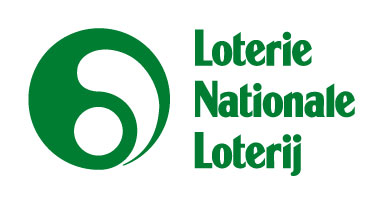As a part of EU Green Week, Pesticide Action Network Europe (PAN Europe) conducted a European-wide webinar to exchange practical information on how towns across Europe can become pesticide-free. Hosted by the city of Ghent - which has aimed to reduce pesticide use since the early 90’s and has been pesticide-free since 2009 - this webinar allowed greenspace workers, political leaders, NGOs, and citizens, to exchange information and ask questions about the pesticide-free management of towns across Europe.
Ghent Mayor Daniel Termont provided a video introduction to the webinar saying “Today, around 20 years on, our pesticide-free approach has become Ghent’s universal policy. The results are clear to see, all around the city. The streets are obviously greener as we are no longer using chemical weedkillers: poppies, buttercups and daisies are peppering the edges of our pavements. Until recently, it was very difficult for bees to survive in our city. Now, Ghent has several beekeepers, who have found the city to be a healthy environment for keeping bees.”
This webinar is part of PAN Europe’s larger campaign on Pesticide Free Towns (http://www.pesticide-free-towns.info/), including the release of a guide in 4 languages on how towns can become pesticide-free. The guide “Stories and Principles on Pesticide Free Towns” provides inspiring examples and helpful tips from Ghent, and other towns all around Europe who have been pesticide-free for many years (http://www.pesticide-free-towns.info/stories-principles). The webinar will soon be available in French, Dutch, and English online at:http://www.pesticide-free-towns.info/webinar.
PAN Europe’s evaluation of the level of implementation of the Sustainable Use Directive (SUDP) (http://www.pan-europe.info/sites/pan-europe.info/files/public/resources/...) clearly shows that some Member States’ lack of effort to reduce pesticide must sometimes be compensated by decisions at town-level. More and more member states and municipalities around Europe are taking actions to ban the use of pesticides in public areas including cemeteries, sidewalks, parks, schools, kindergartens, sport fields, railways, just to name a few. Workers that apply the pesticides must wear protection clothes but immediately after that, kids and families come play, picnic, and lounge freely on the grass where they come in direct contact with toxic pesticides. Thus, towns making the effort to become pesticide-free represents a significant step in reducing our dangerous exposure to pesticides.
PAN Europe works to eliminate dependency on chemical pesticides and to support safe sustainable pest control methods. PAN Europe is committed to bringing about a substantial reduction in pesticide use throughout Europe. Pesticide (including biocides) reduction is a prerequisite for improvements of public and workers health, protection of the environment, and its strict implementation is in line with the precautionary principle.
If you have questions or would like to know more about PAN Europe’s Pesticide Free Towns Campaign, please be in touch with Marie Musch, marie [at] pan-europe.info

